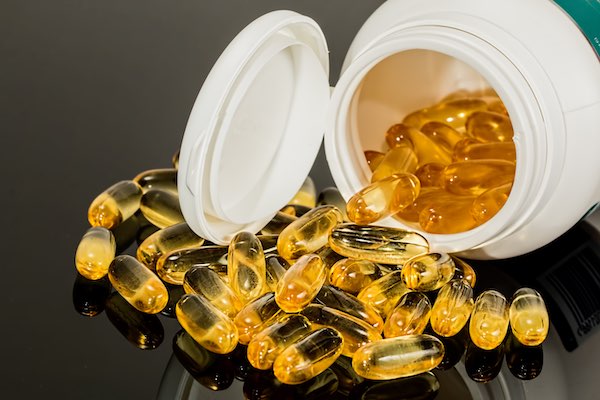Should I Take Vitamins?
 Getting your vitamins is crucial to maintaining good health, but there is a lot of confusing information out there for how to ensure you’re getting the nutrition you need. By and large, scientists, medical practitioners, and nutritionists agree that the best way to get the vitamins (and minerals) your body needs is by eating a healthy, varied diet.
Getting your vitamins is crucial to maintaining good health, but there is a lot of confusing information out there for how to ensure you’re getting the nutrition you need. By and large, scientists, medical practitioners, and nutritionists agree that the best way to get the vitamins (and minerals) your body needs is by eating a healthy, varied diet.
But what about all those vitamin supplement bottles you see in ads and in the grocery store? Could you be missing an essential nutrient? Read on for everything you need to know about vitamins, vitamin supplements, and how to ensure you are getting the nutrients you need for a healthy life.
Are “vitamins” different from “vitamin supplements”?
The short answer is: yes. Vitamins are “micronutrients” or chemicals that cause reactions to happen in your body. While there are innumerable vitamins in the world, the ones you need to maintain good health are mostly found in the food you eat and the environment around you.
Vitamin supplements are the pills you can buy that contain amounts of specific vitamins and minerals. While there seems to be an endless variety of seemingly beneficial vitamin supplements, it is important to be informed before you purchase them.
How do I know if I need vitamin supplements?
The reason you would need to take a vitamin supplement is if you are deficient in a certain nutrient and you cannot right this imbalance through changing your diet or other health habits. If you eat a diet filled with colorful vegetables, lean protein, whole grains, beans, and nuts; drink plenty of water; get good sleep, and keep up with your doctor appointments, you are likely getting most (if not all) of the vitamins and minerals your body needs.
That being said, there are a couple of ways to gauge if you are deficient in certain vitamins or minerals. Try keeping a food journal for a week or more, recording what and how much you eat, then reviewing your habits for potential deficiencies. Maybe you aren’t eating enough foods rich in blood pressure-stabilizing potassium (like bananas, kidney beans, lentils, and cooked spinach); if you are a vegetarian or vegan, perhaps you are missing out on sources of oxygen-rich vitamin B12 (found mostly in meat and dairy products).
Once you understand how you are eating and where you might have some deficiencies, it is important to discuss this with your doctor, who can run a more precise test and recommend the best way to correct these imbalances.
What vitamin supplements should I take?
Most vitamin supplements you see in the store are not worth your time and money. In fact, some may even be detrimental to your health. Further, not all vitamin supplements are created equal. The U.S. Food & Drug Administration (FDA) does not regulate vitamin and mineral supplements, so if you do decide to take a supplement, look for brands that are “USP Verified,” which means they have undergone a third-party review.
We can’t say this enough: always talk to your doctor before you begin taking a vitamin supplement. Here are few doctors may recommend to help resolve common issues:
Iron
Iron is an important mineral that helps transport oxygen throughout the body. Iron deficiency, or a lack of iron in one’s red blood cells, can cause feelings of drowsiness and dizziness. Doctors will often prescribe adjustments to one’s diet to incorporate more iron-rich foods (like beans, tofu, spinach, and cashews) in addition to an iron supplement.
Vitamin D
Vitamin D is crucial to keeping your bones and joints healthy. However, because Vitamin D is most often created in the body through exposure to sunlight, it is a tough one to get enough of in our region. Because there are very few foods that can help with a Vitamin D deficiency, most doctors will prescribe a supplement.
Vitamin B12
There are a lot of different B vitamins, but B12 is a big one. Responsible for maintaining the health of the central nervous system, a deficiency in this vitamin can have serious consequences. Found in meat, dairy, and eggs, people who eat these foods often do not experience a deficiency, but vegans and vegetarians usually need to take a B12 vitamin supplement.
Before you go running out to purchase the latest miracle vitamin supplement everyone is talking about, take a pause. It can be tempting to try a magic pill to resolve health issues, but many vitamin deficiencies can be rebalanced by changes to diet. No matter what, talk to your doctor before taking a vitamin supplement.
Here at Kennedy Chiropractic, we love helping our patients find the health solutions that are right for them. Serving Wauwatosa and surrounding communities, we are committed to keeping you healthy and active at every age. Give us a call to schedule a consultation today.



